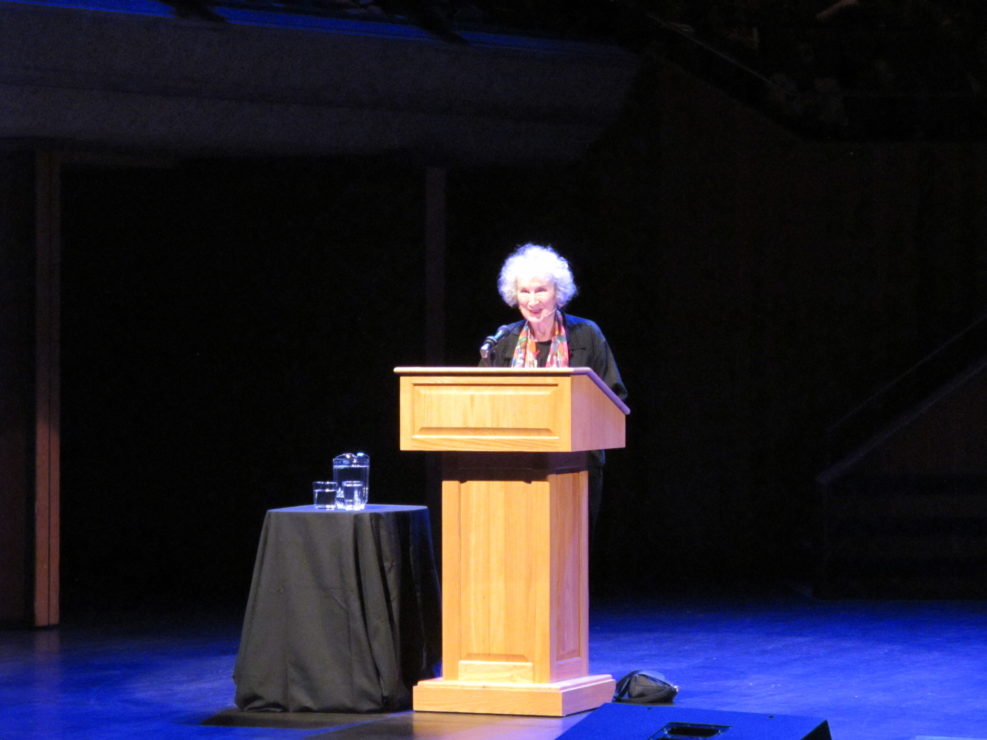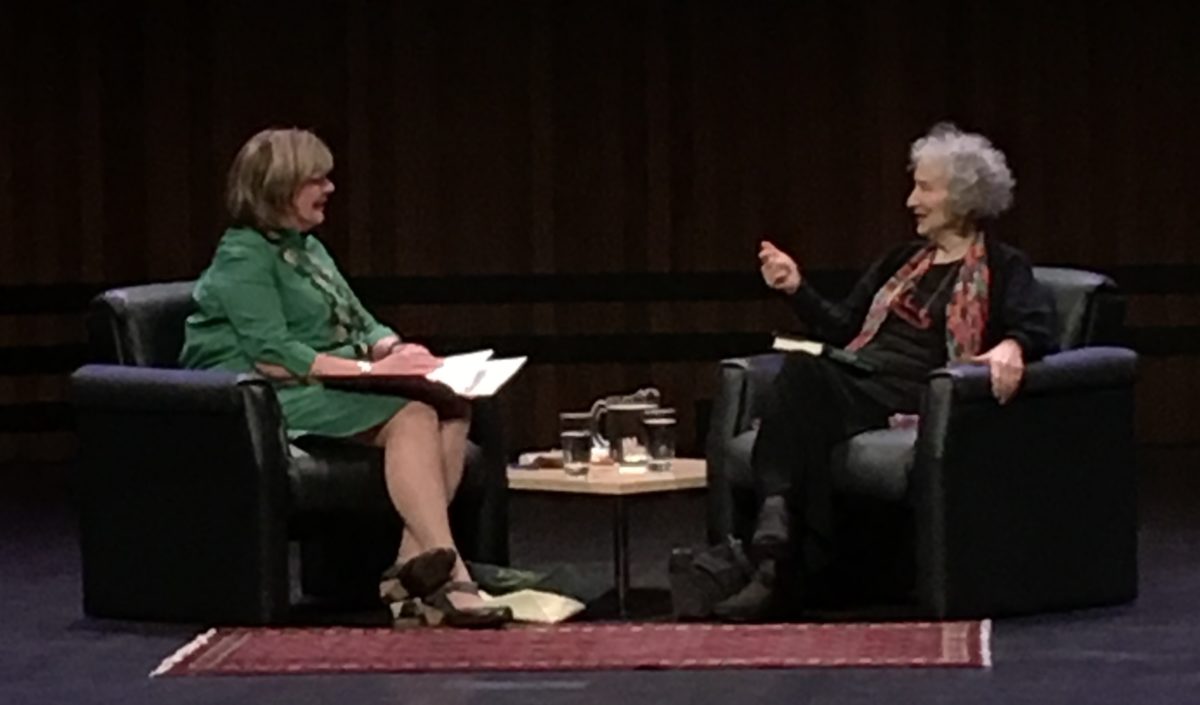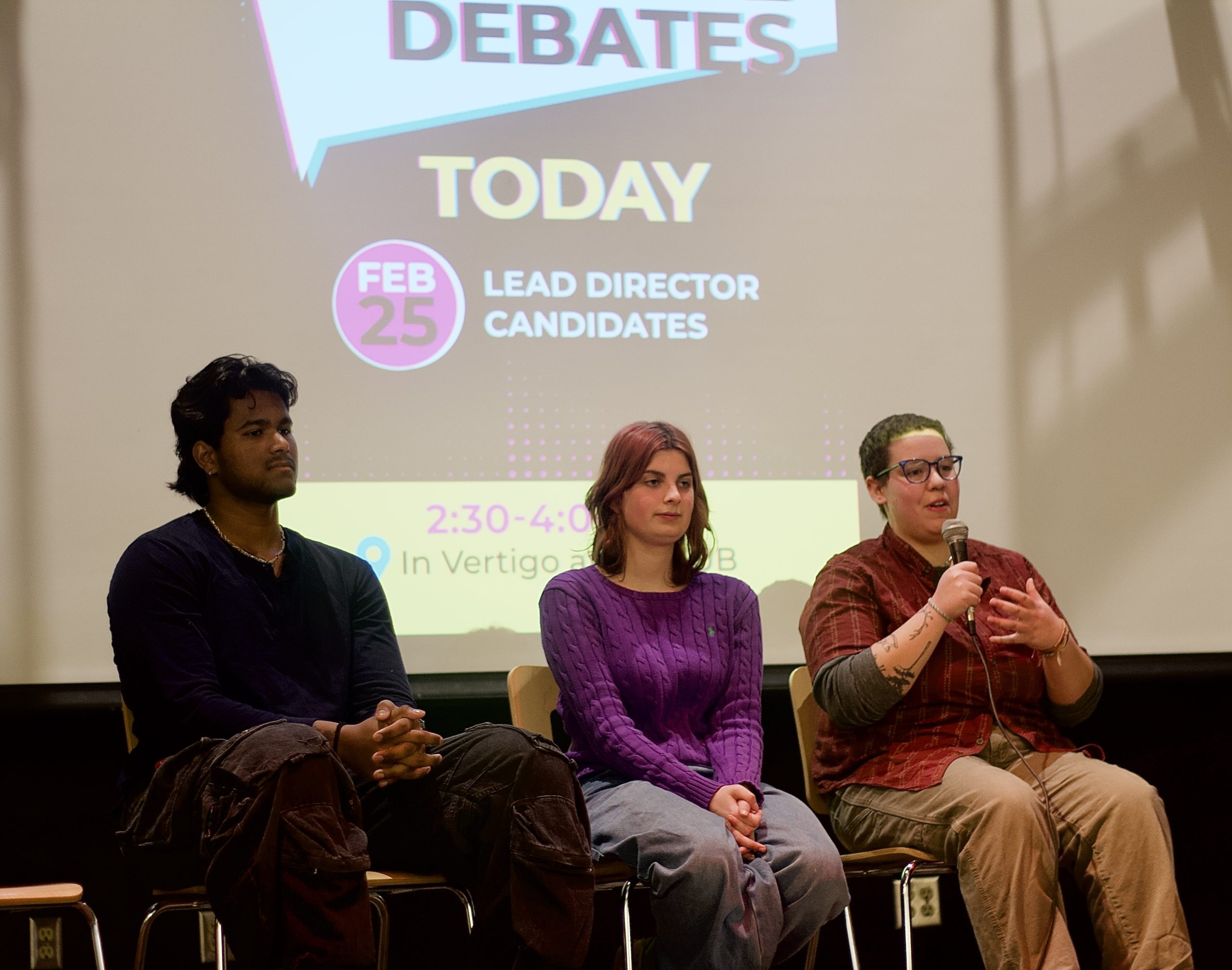
Excited whispers and the rustle of pages filled the lobby of the University Centre on Sep. 28 as a bustling crowd waited to be let in to the Farquhar Auditorium. A literary crowd of this size meant only one thing — Margaret Atwood had come to UVic.
Atwood has authored over 50 fiction novels, essays, poems, and graphic novels for which she has won numerous awards, and has been published in more than 45 countries. That evening, she was in Victoria to celebrate the release of The Testaments, the long-awaited sequel to her 1985 novel The Handmaid’s Tale.
The timing of the event couldn’t have been more appropriate. Earlier that day, 20 000 people marched down the streets of Victoria in solidarity with the Global Climate Strike, trying to prevent our ecosystem from mirroring the environmental wasteland depicted in Atwood’s novel.
Joining Atwood in the discussion on stage was Shelagh Rogers, UVic Chancellor and CBC Radio host. The event marked the 13th time Rogers had interviewed Atwood — and unlike their radio interviews, Rogers said, she didn’t have to restrain any of her laughter at Atwood’s witty responses.
Atwood entered to a standing ovation from the largely female audience in the sold out auditorium. After reading briefly from the first chapter of The Testaments, she settled into an armchair next to Rogers to discuss Greta Thunberg, palm reading, and her long-awaited novel.
One of the first topics of discussion was the intense security and secrecy around the release of Atwood’s latest book to avoid piracy. However, even when The Testaments was accidentally leaked to certain readers through Amazon, they diligently kept spoilers to themselves. Rogers had to hide her advance knowledge of the book — which arrived without a cover or title — and hastily lied when her dog-sitter discovered the book, saying that it was a history of the Beatles’ White Album.
That wasn’t the only snafu started by the The Testaments — it caused global shortages of the distinct green ink used on its cover due to mass printing. The shade of green was actually a change made by Atwood after she re-colored the cover (which was originally blue) with crayons to match the Canadian endpapers. Both sides of the cover actually depict hidden figures, representing what Rogers called “a visual palindrome” of the characters’ journeys.
For a long time, Atwood said she resisted writing a sequel to Handmaid, largely because she felt it wouldn’t work to continue the story in the original protagonist’s voice. But following the narratives of three side characters from the original book (one being the sinister Aunt Lydia) piqued her interest, along with delving more into the collapse of Gilead.

The determination of young people across the globe was a common thread Atwood kept coming back to in her discussion as something that gives her hope, using Greta Thunberg as a principle example.
“She has a lot of people behind her, and those people will be voting very soon, so [men in power] are scared of her,” said Atwood. “And they should be scared of her, because these kids get it.”
She encouraged everyone in need of some hope to check out Project Drawdown, an online network actively working on a variety of projects — from organic farming to educating girls and women — that can achieve a net positive environmental impact.
Then came a question submitted from the audience — would Atwood read Rogers’s palms, as she had for Seth Meyers on late night TV? She was more than happy to, and ultimately ended up delivering such a zealous, in-depth reading that Rogers had to pull her hands away after five long minutes.
Bringing the conversation back to her writing, the 79-year-old author could not say whether The Testaments would be her last work in the Handmaid’s saga. For years, she said she would never write a sequel, so she doesn’t want to declare anything out of the question at this point.
“I try not to say what I’m going to do in the future, because I’m usually wrong,” said Atwood. “I always prefer to finish something, and then [let people] see what it is.”
At one point, Rogers acknowledged the many fans that call Atwood “Lady Oracle” for the many things in her writing that appear to have foretold the recent rise of authoritarian leaders and growing sentiments about restricting rights and access around women’s reproductive health.
“I’m not really,” Atwood said. “None of this is rocket science. You can see trends, and you can speculate on what will happen if people don’t change their wicked ways.”
Like The Handmaid’s Tale, no detail went into the new novel that doesn’t have a precedent in real life.
If Atwood had to reduce The Testaments down to one message, it would be that people are complex. But if readers are looking for the important message that isn’t in the book, she said, it would be “vote next time.”







